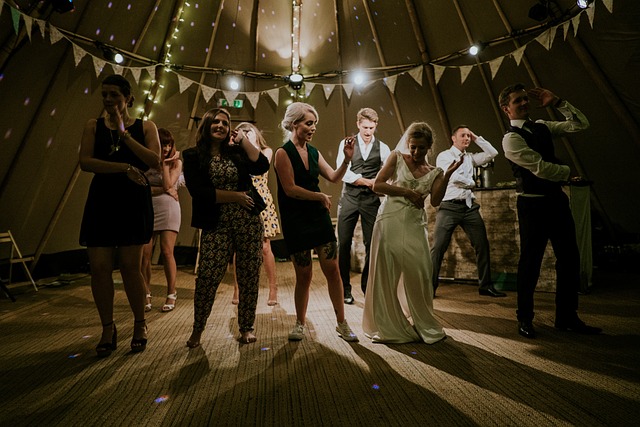Local businesses can elevate their event planning by understanding their community deeply. This involves analyzing demographics, interests, and preferences to create tailored experiences that resonate with attendees. By aligning events with local tastes, such as food festivals or community fairs, planners ensure higher attendance and engagement. Collaboration between business owners and community leaders is key; it provides access to local knowledge, facilitates venue selection, permit securing, and cross-promotion, ultimately fostering a strong sense of community and amplifying event success. This strategic approach results in memorable events that leave lasting impacts on both participants and the host businesses.
“Unleash the power of local events for your business! Discover the secrets behind expert event coordination that drives success. This comprehensive guide, tailored for local businesses, navigates the key steps from understanding your community to marketing strategies. Learn how to identify and engage your target audience, collaborate with community leaders, and create unforgettable experiences. Through venue selection, detailed planning, and targeted promotion, you’ll attract attendees and leave a lasting impact. Master event planning for local businesses and watch your community events thrive.”
- Understanding Your Local Community: Key to Successful Event Coordination
- – Identifying target audience and their interests
- – Collaborating with local businesses and community leaders
Understanding Your Local Community: Key to Successful Event Coordination

Understanding your local community is a cornerstone in event planning for local businesses. Successful coordination requires recognizing the unique needs, interests, and demographics of those who call this place home. By engaging with local residents, business owners, and community leaders, organizers can tailor events that resonate deeply with attendees. This personal connection fosters higher attendance, increased engagement, and stronger positive outcomes.
Local knowledge also helps in selecting suitable venues, securing necessary permits, and addressing logistical challenges specific to the area. It enables event planners to partner effectively with local vendors, artists, and entertainment options, contributing to a vibrant and authentic experience that reflects the community’s spirit. This level of understanding is crucial for creating memorable events that not only succeed but also leave a lasting positive impact on both attendees and the host business.
– Identifying target audience and their interests

When planning local events, understanding your target audience is key to their success. Event planners should conduct thorough research to identify demographics, preferences, and interests of potential attendees. This involves delving into data from previous events, market surveys, and analyzing community trends specific to local businesses. By pinpointing the audience’s motivations and tastes, organizers can tailor event themes, activities, and marketing strategies accordingly. For instance, a local food festival might cater to food enthusiasts who appreciate unique culinary experiences, while a community fair would appeal to families seeking entertainment and local products.
Event planning for local businesses thrives on this audience-centric approach. It ensures that events create memorable experiences aligned with participants’ interests. By aligning event objectives with audience preferences, organizers can increase attendance, boost engagement, and foster positive relationships within the local community. This strategic focus is essential to stand out in a competitive market and make each event a unique success story for participating businesses.
– Collaborating with local businesses and community leaders

Effective event planning for local businesses thrives on collaboration with community leaders and nearby establishments. By forging partnerships, event organizers can tap into a wealth of knowledge and resources that might otherwise be inaccessible. Local business owners possess deep insights into their community’s dynamics and preferences, enabling them to suggest optimal venues, timing, and promotional strategies tailored to attract the target audience. Additionally, these collaborations foster a sense of community spirit, with potential for cross-promotion and shared success.
Community leaders, such as local government representatives and community organization heads, play a pivotal role in securing permits, managing logistics, and facilitating communication. Their connections can open doors to public spaces and influential platforms, amplifying the event’s reach and impact. Moreover, their support lends credibility and legitimacy to the event, encouraging participation from both businesses and the general public, thereby ensuring its overall success.
Planning successful local events involves a deep understanding of your community. By identifying the interests of your target audience and collaborating with local businesses and leaders, you can create meaningful experiences that resonate. This strategic approach not only fosters a stronger sense of community but also enhances the visibility and appeal of local businesses, making it a crucial aspect of event planning for their success.
